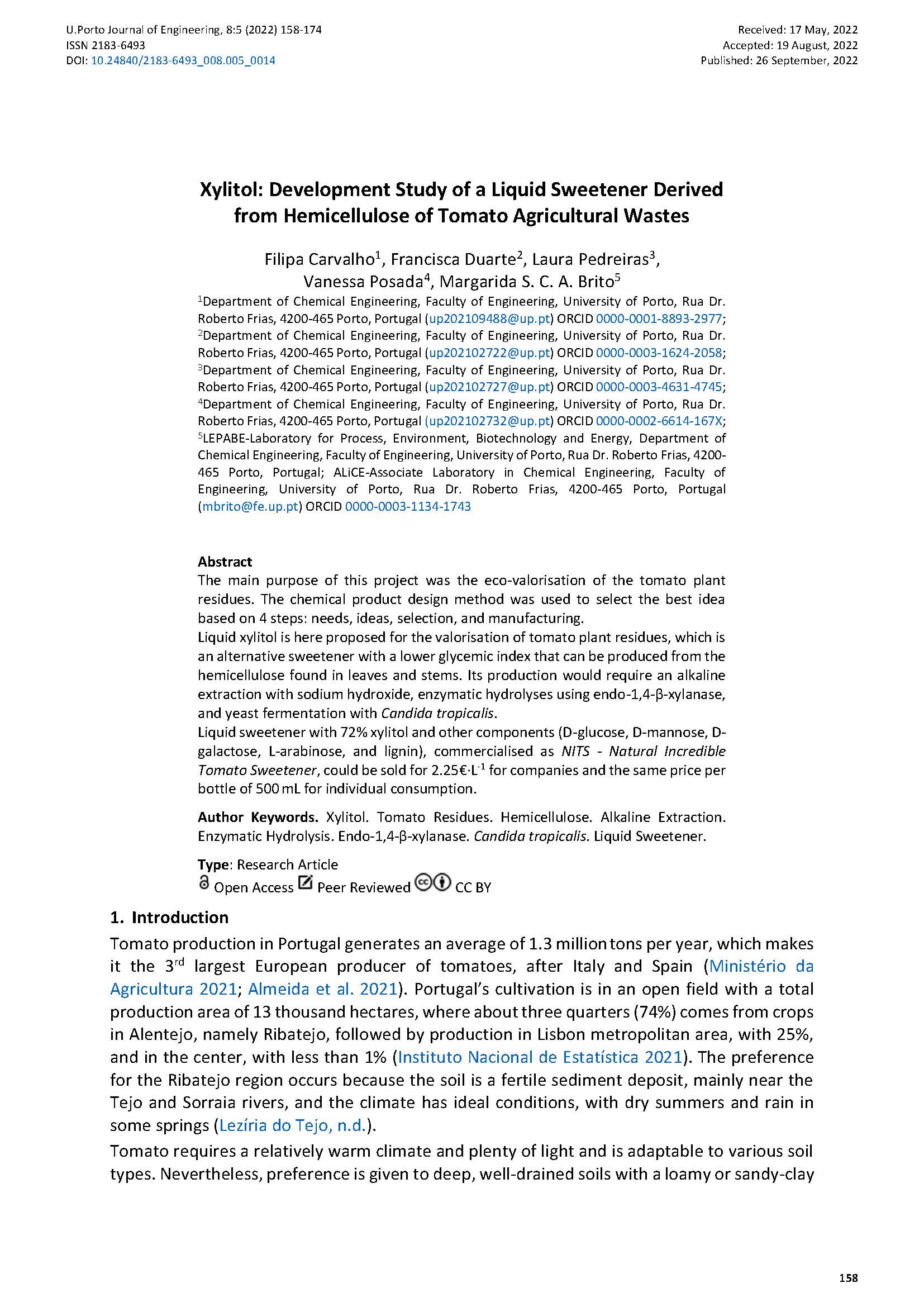Xylitol Development Study of a Liquid Sweetener derived from Hemicellulose of Tomato Agricultural Wastes
Main Article Content
Abstract
The main purpose of this project was the eco-valorisation of the tomato plant residues. The chemical product design method was used to select the best idea based on 4 steps: needs, ideas, selection, and manufacturing.
Liquid xylitol is here proposed for the valorisation of tomato plant residues, which is an alternative sweetener with a lower glycemic index that can be produced from the hemicellulose found in leaves and stems. Its production would require an alkaline extraction with sodium hydroxide, enzymatic hydrolyses using endo-1,4-β-xylanase, and yeast fermentation with Candida tropicalis.
Liquid sweetener with 72% xylitol and other components (D-glucose, D-mannose, D-galactose, L-arabinose, and lignin), commercialised as NITS - Natural Incredible Tomato Sweetener, could be sold for 2.25 €·L-1 for companies and the same price per bottle of 500 mL for individual consumption.
Downloads
Article Details

This work is licensed under a Creative Commons Attribution 4.0 International License.
Authors who publish with this journal agree to the following terms:
- Authors retain copyright and grant the journal right of first publication with the work simultaneously licensed under a Creative Commons Attribution License that allows others to share the work with an acknowledgement of the work's authorship and initial publication in this journal.
- Authors grant the journal the rights to provide the article in all forms and media so the article can be used on the latest technology even after publication and ensure its long-term preservation.
- Authors are able to enter into separate, additional contractual arrangements for the non-exclusive distribution of the journal's published version of the work (e.g., post it to an institutional repository or publish it in a book), with an acknowledgement of its initial publication in this journal.
- Authors are permitted and encouraged to post their work online (e.g., in institutional repositories or on their website) prior to and during the submission process, as it can lead to productive exchanges, as well as earlier and greater citation of published work (See The Effect of Open Access).

